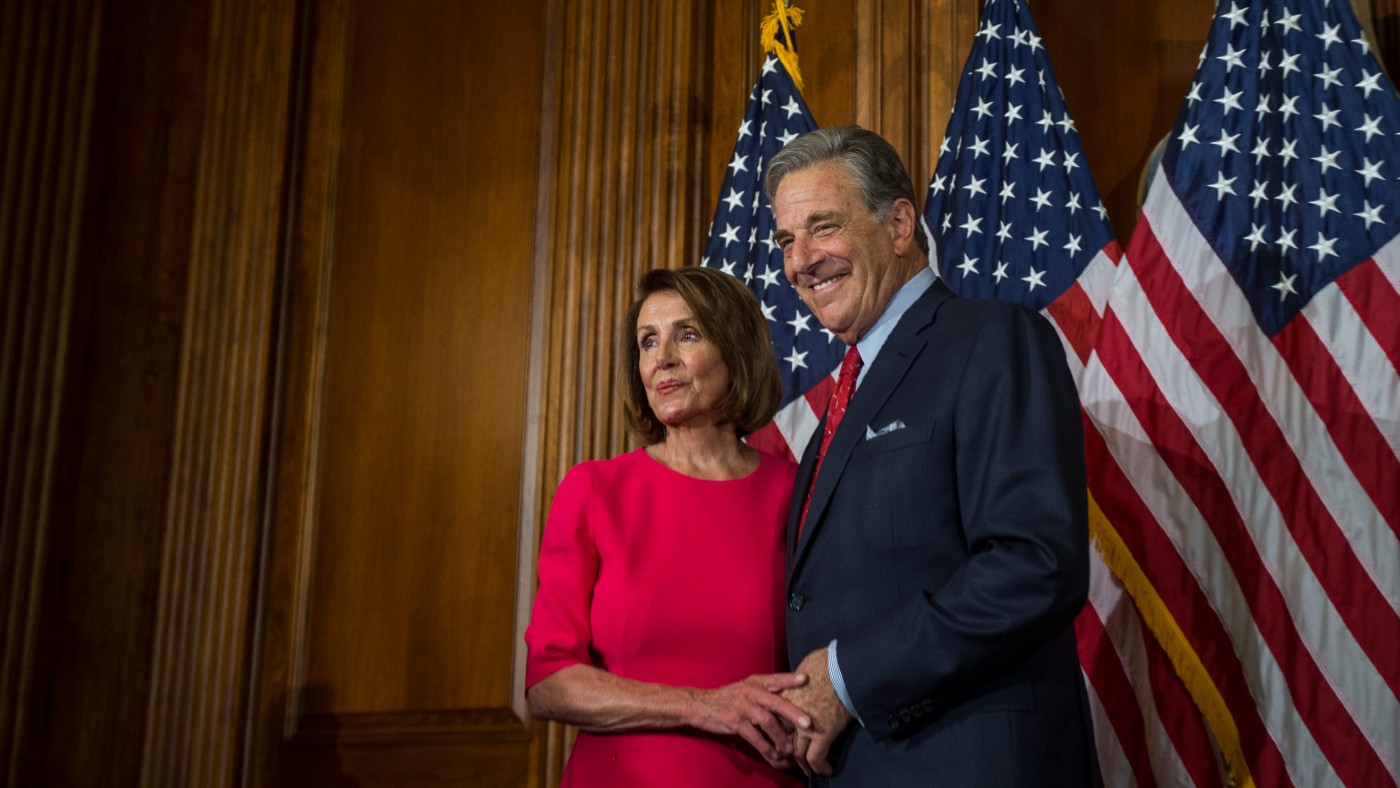US politicians and the stock market: are they guilty of insider trading?
Legislators are pushing for members of Congress to be banned from trading in individual stocks

A free daily email with the biggest news stories of the day – and the best features from TheWeek.com
You are now subscribed
Your newsletter sign-up was successful
Ever wondered why regular Americans hold their leaders in such low esteem? It’s partly because they suspect them of playing the system, said the St. Louis Post-Dispatch – and who can blame them when you see how politicians speculate on the stock market.
In January 2020, the public had no idea of the impact Covid was about to have, but many members of Congress did, because they were getting classified briefings from experts. In the wake of those briefings, then senator Kelly Loeffler sold off millions in stocks, and invested in a teleconferencing firm. Senator Richard Burr sold his hotel holdings. Senator Rand Paul’s wife bought stock in a pharma company making antivirals.
Whether these were “just happy coincidences or something more sinister”, they looked very dodgy. Some legislators are rightly now pushing for members of Congress to be banned from trading in individual stocks.
The Week
Escape your echo chamber. Get the facts behind the news, plus analysis from multiple perspectives.

Sign up for The Week's Free Newsletters
From our morning news briefing to a weekly Good News Newsletter, get the best of The Week delivered directly to your inbox.
From our morning news briefing to a weekly Good News Newsletter, get the best of The Week delivered directly to your inbox.
The proposed legislation “comes not a moment too soon”, said Katrina vanden Heuvel in The Washington Post. The problem is not just that lawmakers can unfairly enrich themselves; it’s that they’re open to glaring conflicts of interest. How can Congress be trusted to dispassionately regulate Big Tech, or the drug giants, when so many of its members have a financial stake in these firms?
To see how it can cloud their judgement, just look at the way Speaker Nancy Pelosi initially tried to resist reform: “We are a free-market economy,” she said. Members of Congress “should be able to participate in that.” This, of course, is the same Nancy Pelosi who, with her venture capitalist husband, has done so well from trading that “there’s an entire community on TikTok” that follows her portfolio – calling her the “queen of investing”.
The proposal is that members of Congress should put their assets in blind trusts while serving, said Theo Wayt in the New York Post. That would help restore public confidence. And for some Democrats it would have “an added bonus: revenge on Senator Joe Manchin”. They’re furious with their colleague for blocking President Biden’s $2tn Build Back Better Act, which would have allocated tens of billions of dollars to fight climate change. If a new law forces Manchin to give up control of his stake in a coal company, they’ll be happy.
It’s “amazing” that we’re even debating this reform, said Robert Reich on CommonDreams.org. It’s a “no-brainer. Let’s get it done.”
A free daily email with the biggest news stories of the day – and the best features from TheWeek.com
-
 Switzerland could vote to cap its population
Switzerland could vote to cap its populationUnder the Radar Swiss People’s Party proposes referendum on radical anti-immigration measure to limit residents to 10 million
-
 Political cartoons for February 15
Political cartoons for February 15Cartoons Sunday's political cartoons include political ventriloquism, Europe in the middle, and more
-
 The broken water companies failing England and Wales
The broken water companies failing England and WalesExplainer With rising bills, deteriorating river health and a lack of investment, regulators face an uphill battle to stabilise the industry
-
 Currencies: Why Trump wants a weak dollar
Currencies: Why Trump wants a weak dollarFeature The dollar has fallen 12% since Trump took office
-
 Elon Musk’s starry mega-merger
Elon Musk’s starry mega-mergerTalking Point SpaceX founder is promising investors a rocket trip to the future – and a sprawling conglomerate to boot
-
 TikTok: New owners, same risks
TikTok: New owners, same risksFeature What are Larry Ellison’s plans for TikTok US?
-
 Will SpaceX, OpenAI and Anthropic make 2026 the year of mega tech listings?
Will SpaceX, OpenAI and Anthropic make 2026 the year of mega tech listings?In Depth SpaceX float may come as soon as this year, and would be the largest IPO in history
-
 Leadership: A conspicuous silence from CEOs
Leadership: A conspicuous silence from CEOsFeature CEOs were more vocal during Trump’s first term
-
 Ryanair/SpaceX: could Musk really buy the airline?
Ryanair/SpaceX: could Musk really buy the airline?Talking Point Irish budget carrier has become embroiled in unlikely feud with the world’s wealthiest man
-
 Powell: The Fed’s last hope?
Powell: The Fed’s last hope?Feature Federal Reserve Chairman Jerome Powell fights back against President Trump's claims
-
 Taxes: It’s California vs. the billionaires
Taxes: It’s California vs. the billionairesFeature Larry Page and Peter Thiel may take their wealth elsewhere